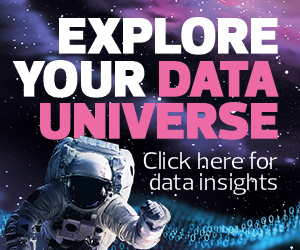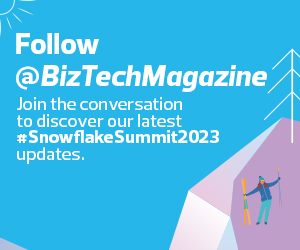Snowflake Introduces New Capabilities to Empower Financial Data
During the opening keynote of the summit, Frank Slootman, Snowflake’s chairman and CEO, and Kleinerman shared a series of new ways the company is enabling financial services companies to realize the value of their data.
Kleinerman elaborated on some of the announcements he thought would be most promising for financial institutions, highlighting the Native Apps framework in particular.
“The financials folks are at the forefront of data sharing. We see amazing success there. Many of the data providers that we have realize the need to provide not just raw data, but also an experience for business users to browse and understand the data that is included,” Kleinerman said.
DISCOVER: Find out how CDW can help your organization with data analytics solutions.
Kleinerman expressed his excitement for the potential of data and app sharing in the Snowflake Marketplace, especially light of the announcement made by Bloomberg during the summit.
Bloomberg announced in a press release “that its Data License Plus (DL+) offering now powers a Snowflake Native App that will allow mutual customers to provision their set of Bloomberg Data License subscriptions in the Snowflake Data Cloud and configure a ready-to-use environment that is already hydrated with fully modeled Bloomberg data and multivendor ESG content — all within minutes.”
He also spoke highly about the potential for Snowflake Container Services within the financial sector. “I think it significantly changes the art of what's possible with Snowflake. And I think it's equally interesting to partners, building solutions and distributing tools — not just partners, but customers as well.”
He offered the example of Goldman Sachs, which recently integrated their open-source platform Legend with Snowflake and AWS. That Goldman Sachs data, according to Kleinerman, is now “included in a container that will be made available to other financial services customers as part of this platform.”















